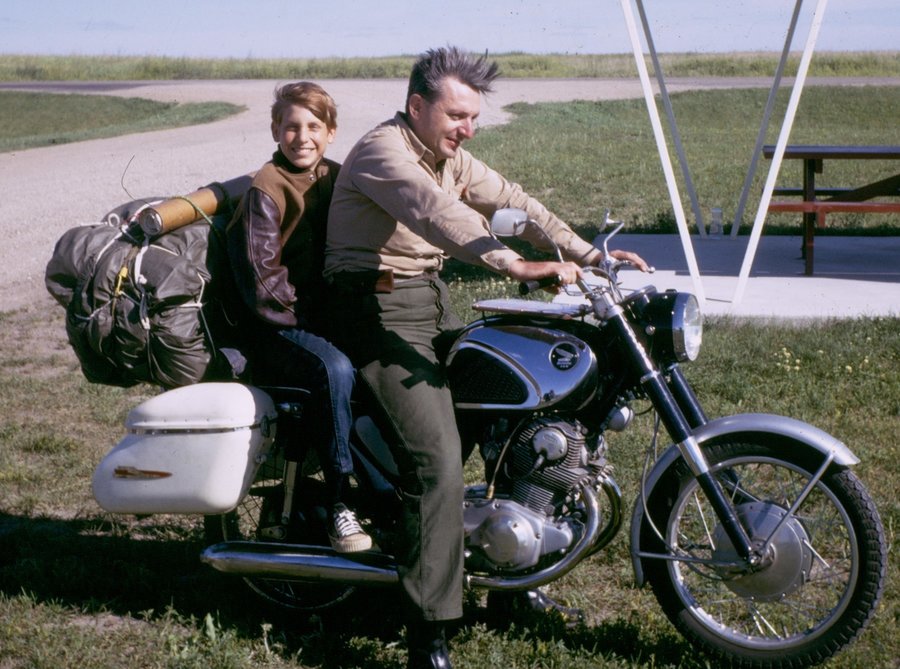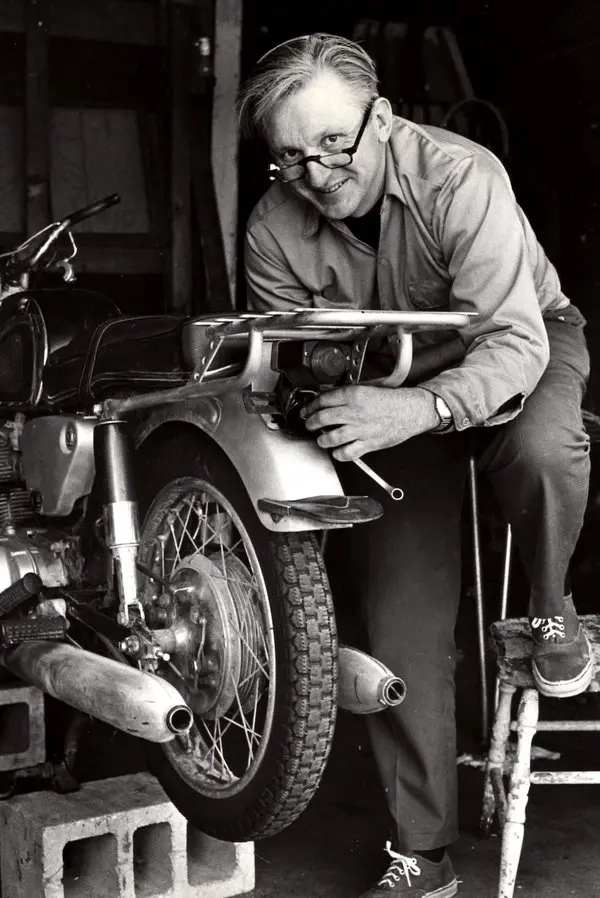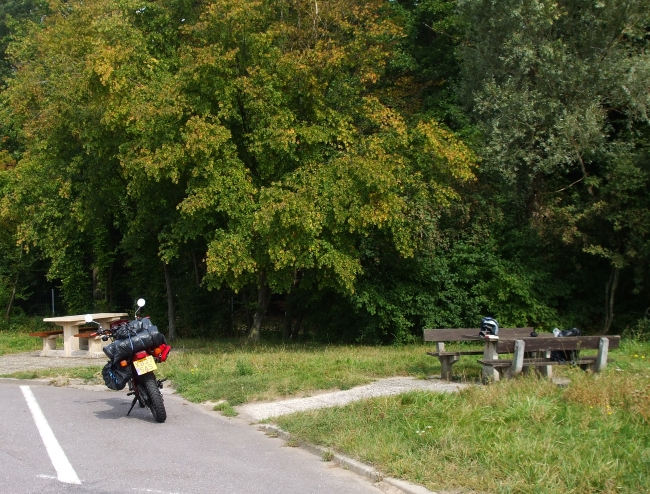‘The study of the art of motorcycle maintenance is really a miniature study of the art of rationality itself. Working on a motorcycle, working well, caring, is to become part of a process, to achieve an inner peace of mind. The motorcycle is primarily a mental phenomenon.’
I still haven’t found a bike yet, so I’m doing the next best thing: reading about motorcycling. There aren’t many books about biking that I have read more than once, but one of them is Zen and the Art of Motorcycle Maintenance, by Robert M. Pirsig.
Back in 1968, Bob Pirsig and his eleven year old son Christopher went on a trip from Minneapolis to San Francisco on a 300cc Honda SuperHawk motorcycle. Pirsig decided to write about the trip, but this is the story of a motorcycle journey in the same way that Moby Dick is the story of a whale.

Pirsig and Christopher on the Honda SuperHawk.
This is a novel, but it’s also autobiographical – in the introduction Pirsig notes that: ‘What follows is based on actual occurrences. Although much has been changed for rhetorical purposes, it must be regarded in its essence as fact.’ Pirsig uses engagement with motorcycles, both the riding and fixing therof, as a way to examine the philosophical relationship of people to technology.
Except that it’s not that simple. It’s also about trying to reconcile two very different philosophical views of the world: the Romantic, which is concerned with appearance and form and the Classical, which sees things in terms of underlying function.
‘One solution to boredom on certain kinds of jobs such as greasing and oil changing and tuning is to turn them into a kind of ritual. There’s an esthetic to doing things that are unfamiliar and another esthetic to doing things that are familiar.’
Pirsig uses the different approaches to motorcycling of himself and his friend John to illustrate these philosophical views of the world. That’s fascinating, but it can also be hard work. Take this for example:
‘The way to solve the conflict between human values and technological needs is not to run away from technology. That’s impossible. The way to resolve the conflict is to break down the barrier of dualistic thought that prevent a real understanding of what technology is – not an exploitation of nature, but a fusion of nature and the human spirit into a new kind of creation that transcends both.’
The book is also about Pirsig’s search for the ghost of Phaedrus, a character used by Plato in a philosophical debate who may or may not also represent Pirsig in a previous phase of his life before some form of mental breakdown.
I love reading and I love riding motorcycles. Sometimes, rarely, I can combine both (not at precisely the same time, obviously!). On one trip to Europe on an elderly bike I took a copy of Zen and the Art with me. Every hour or so I’d stop at the side of the road and read some of this book. Then I would bumble along for another hour, thinking about what I’d read. Then I’d stop again…

Bob Pirsig really was a keen home motorcycle mechanic.
Even though I have read it four or five times, I’m still not sure I really understand this book. Perhaps that’s why I keep coming back to it? I find the first seventy or eighty pages, where Pirsig uses his trip and stories about motorcycles to illustrate relatively simple philosophical principles, fairly clear. But when the book later moves into abstract philosophy, I struggle to keep up.
But sometimes Pirsig will say something so simple but so wonderful that it makes the hairs on the back of my neck stand on end. For me, the quote with which I started this blog (here) is still the most succinct and true explanation I have ever seen of why riding a motorcycle is different to driving a car and much of what Pirsig has to say can be seen as underpinning modern movements like mindfulness and minimalism.

Somewhere deep in the heart of Europe – bike, book, sunshine, open road. I’m not sure it gets any better than this.
If you haven’t read it, I highly recommend Zen and the Art. It doesn’t take long to understand why more than one hundred and twenty publishers initially turned it down. Or to see why it has never been out of print since it first appeared in 1974.
There is great literature. There are great books about motorcycling. It’s rare to find both in one volume.
